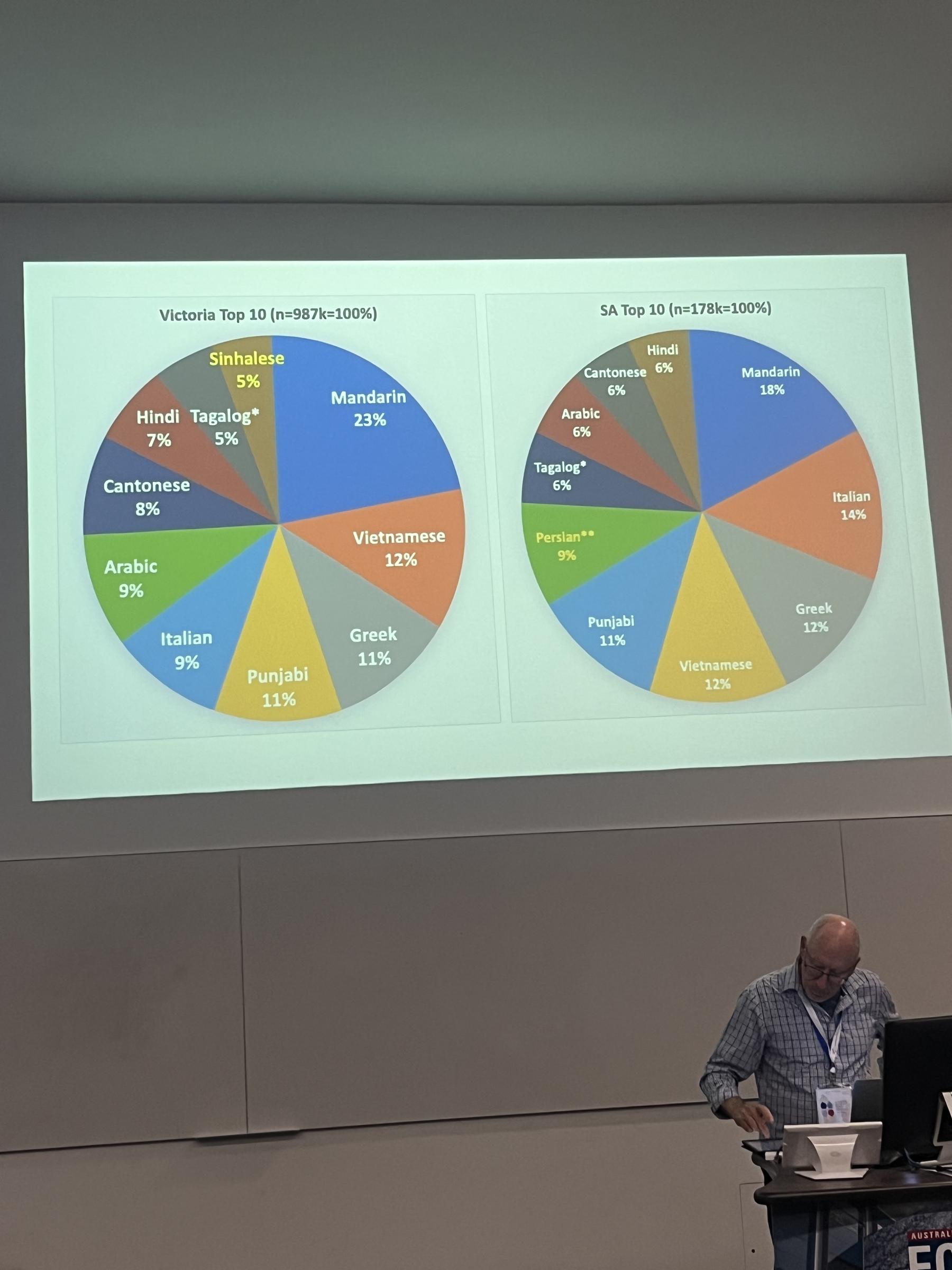Teachings from the AFMLTA Conference

Earlier in 2023, I applied for a bursary offered by the Modern Language Teachers Association of Victoria (MLTAV) to attend the annual conference of the Australian Federation of Modern Language Teachers’ Associations (AFMLTA). The conference took place during the June/July school holidays at the Mount Lawley campus of Edith Cowan University in Perth. I feel very privileged to have received this rich opportunity for professional development and networking from the MLTAV. I found the experience truly inspiring and left the conference with my head full of new ideas, new knowledge, and new areas of interest.
Being surrounded by other passionate language educators from all around Australia and having the opportunity to talk with and discuss language teaching pedagogy, curriculum, and policy across different states and territories increased my knowledge and understanding of how different languages are taught in different areas throughout this country and abroad. I found particular interest in listening to educators from the Alice Springs Language Centre discuss their fight to ensure that Arrernte language is preserved, passed down, and taught into the future through the creation of dictionaries, picture dictionaries, online lexicons, children’s books in language, and language teaching mentorship programs for year 11 and 12 students. This made me realise just how important a job language teachers have. We are, in many cases, responsible for the encouragement and teaching of intercultural awareness amongst our students, which, in turn, brings about greater levels of empathy and understanding between cultures. We help our students build intercultural bridges and see the world through different lenses.
Many of us teach prestige languages that have traditionally been used widely around the world for trade, such as French, Japanese, Italian, German, and Spanish. However, increasingly, researchers in language acquisition are becoming aware of the necessity to include community languages (such as Greek, Vietnamese, Arabic, Russian, etc.) in our curriculums in order to encourage their use among non-native/non-background speakers and increase intercultural understanding and interactions among the citizens of different locales. Mandarin is a prestige language but can be considered a community language in many places throughout Australia too. Preserving endangered languages is increasingly salient, and many indigenous languages, such as Arrernte, of which many of its teachers are reaching retirement age with not enough young people coming through to take on the role of passing on language to their own community, are at increasing risk of dying with their elders.
As part of my bursary conditions, I was required to write two reviews of sessions that I attended. Among the many sessions I attended across the two-day conference, I chose to write about one relating to Japanese teaching and another relating to supporting students with dyslexia in the languages classroom.
Stephanie Veber
Languages Support Staff
